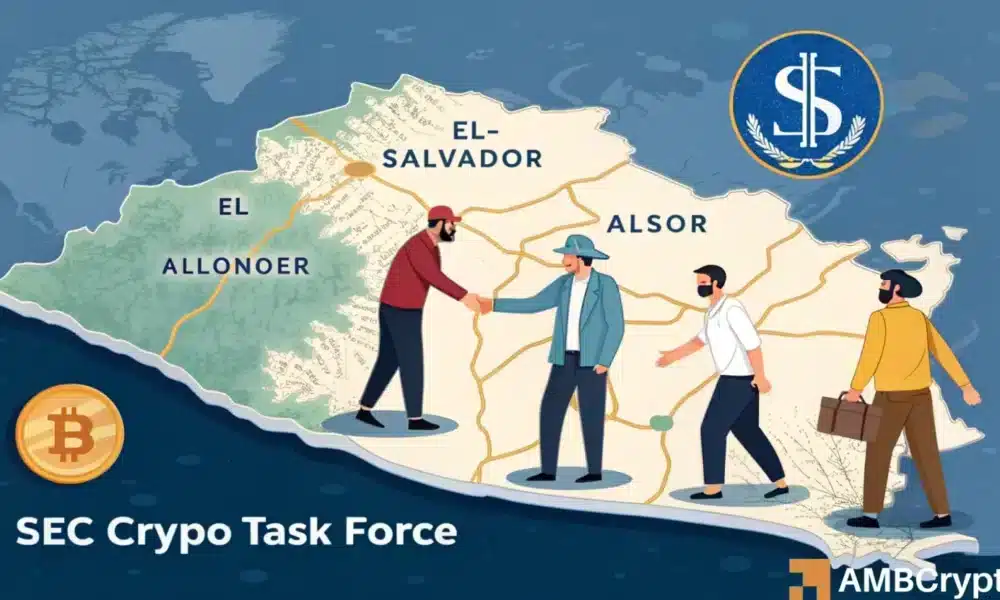- SEC and El Salvador have proposed a low cost cross-border crypto regulatory sandbox
- Two pilot programs will test tokenization in real estate and capital formation scenarios
In a notable move, El Salvador’s National Commission of Digital Assets (CNAD) recently engaged in strategic talks with the United States SEC’s Crypto Task Force.
During the meeting, both sides proposed a cross-border “regulatory sandbox,” one aimed at testing crypto oversight frameworks in a controlled, collaborative setting.
All about the initiative
At the core of this initiative are two low-cost pilot programs, each under $10,000. These involve partnerships between a U.S.-based broker and a Salvadoran tokenization firm.
The first scenario envisions a collaboration between a U.S.-based real estate broker and a Salvadoran tokenization firm to offer tokenized shares of property to investors – An effort to test asset-backed token sales across borders.
The second scenario shifts focus to capital formation, examining whether such firms can raise funds by selling tokenized equity and subsequently, deploying that capital to initiate an undisclosed project.
While the second pilot omits any reference to real estate, both tests are expected to provide the SEC with critical insights into the practicalities of international crypto-financed ventures based in El Salvador.
Outlined in a memo dated 22 April, the plan reflects growing interest in joint regulatory experimentation. Especially amid heightened U.S-El Salvador tensions around immigration and deportation policy.
In fact, the sandbox proposal emerged as the top priority among four key objectives identified in the meeting.
It claimed,
“This initiative offers the SEC Crypto Task Force a live, real-world case study to evaluate streamlined regulatory approaches for digital assets—an opportunity to observe and refine frameworks that could enhance US market innovation. A key lesson from El Salvador’s experience is the transformative potential of tokenization, particularly in real estate.”
Impact on El Salvador’s crypto ecosystem
No formal agreement has been finalized so far. However, the discussions between El Salvador’s officials, SEC staff, digital asset consultant Erica Perkin, and former Goldman Sachs partner Heather Shemilt highlighted growing interest in international collaboration on crypto regulations.
Though no SEC Commissioners were present, the initiative still holds strategic value.
The proposed sandbox offers a cost-effective means to gather concrete data on several of the Task Force’s top regulatory concerns. If advanced, this partnership could serve as a pivotal experiment in shaping future cross-border frameworks for digital asset oversight.
El Salvador’s deepening engagement with crypto regulations comes at a time when its Bitcoin [BTC] reserves have surpassed 6,000 BTCs. This signals an intensified focus on expanding its strategic holdings in 2025.
This momentum also mirrors a broader trend in emerging markets. Especially as countries like Kyrgyzstan step into the global spotlight with its resource-driven crypto initiatives.
Often dubbed “El Salvador 2.0,” Kyrgyzstan is gaining attention for its more balanced and sustainable approach to digital asset integration.
As both nations chart distinct paths in crypto adoption and regulations, their strategies may offer valuable case studies for countries eyeing similar transformations.

